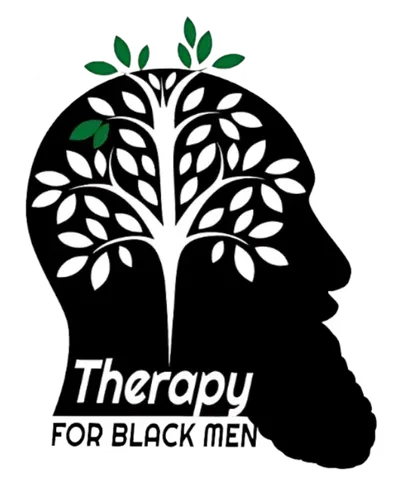Choosing a mental health provider
The importance of the provider relationship
Forming an alliance
When working with a psychiatrist or therapist, success hinges on the strength of your relationship. In fact, research shows that the bond with your therapist matters more than the type of therapy.1
To make the most of your time together and fully commit to the process, there should be an emotional bond, an alignment on your goals and a shared agreement on how to reach those goals.
It’s likely you’ll discuss goals and approaches in each of your visits together, but the emotional bond may be more of a gut feeling to look out for once you’ve had a few sessions. This bond is especially crucial in talk therapy because you’ll be opening up about your deepest feelings and experiences—it’s important to feel safe and comfortable when you do that.
Cultural competency
Some families, religious groups, cultures and communities of color have deeply held concerns about mental health treatment. These concerns are valid and can originate from a variety of sources. A few include:
- Stigma or negative views around mental health conditions (like viewing them as a sign of weakness, or discouraging talking about feelings)
- Experiencing bias or discrimination from a healthcare provider (like not being listened to or being misdiagnosed)
- Finding it harder to access resources (due to language barriers or other challenges around finding good health care)
If you find yourself holding similar reservations or worry no provider will be able to relate to you, try not to rule out treatment altogether. There are steps you can take to find providers who are culturally competent, which means they have the experience and training to understand how to factor your cultural identity, such as age, faith, gender identity or sexual orientation, into your care.
Understanding provider titles and credentials
If you’re beginning to look for mental health treatment you’ve likely considered whether you’d like to go to therapy or psychiatry. Regardless of how you move forward, there are some variations in titles, credentials and specializations that are helpful to be aware of.
Therapist options
“Therapist” is an overarching term, so you’ll see a variety of titles in your search. The main difference is in professional degree or license type (indicated by initials after their name) and areas of specialization. People go to school for different lengths of time and for different areas of focus. If that's important to you, consider doing more research on therapist types and training to see what might be a good fit for you.
Psychiatrist options
There's less variation when it comes to the credentials of psychiatrists. All psychiatrists have a medical degree: either MD (doctor of medicine) or DO (doctor of osteopathic medicine), and have specialization and training in mental health.
Some may have a more general focus, while others may choose to focus on specific age groups or mental health conditions. If you aren’t sure what to look for, you can consider people with general expertise. In some cases a psychiatric nurse practitioner (PMHNP), a nurse practitioner (NP) or a physician assistant (PA) may be involved in your care; they can also prescribe medication.
While it can be easy to feel intimidated by the variation of titles and training, looking at someone’s experience and areas of specialization are often the factors that matter most in getting care that works for your needs. (For instance, you could seek out someone specializing in treating depression, helping with certain kinds of trauma, or using a particular treatment method.)
Where to look for a provider
Starting to find a provider might feel like an overwhelming process. But, the truth is that there are many paths you can take to identify some options and then narrow down the best options for you.
Ask for referrals from people you trust
While it's in your best interest to do your own research, asking for referrals has the potential to speed your path to finding someone who is vetted, and can provide an additional level of reassurance.
- Friends and family: Knowing someone else has had a good experience with a provider is a positive sign. Keep in mind, that doesn’t guarantee the same person will be a good fit for you. And, a provider may decline to work with referrals they feel could affect their ability to be unbiased.
- Your doctors: Asking a doctor like your primary care physician, OB/GYN, or pediatrician is a great first step. They're likely to know trustworthy providers who have helped others achieve positive outcomes.
- Academic hospitals near you: If you're interested in seeing a psychiatrist, look for a nearby medical school. They’re often affiliated with medical centers that have psychiatry departments. Doctors in these departments may have a private practice where they see patients.
Explore insurance databases and directories
Many databases and directories are organized by provider background and provide details about each provider. These details may include things such as a photo of the provider, their training and credentials, descriptions of their interests (for example, helping certain populations like the LGBTQ+ community) and their therapy specializations (for example, helping folks who have experienced certain kinds of trauma).
In some cases, descriptions of how they help people might help you put words to something you’re dealing with or point out an outcome you’d like to achieve.
What to look for in your search
Finding the right therapist might feel overwhelming, but considering your needs from different angles will allow you to identify possible matches (and weed out therapists who aren’t a good fit). Expertise, availability and cost are a few important aspects you can usually learn about to get to a short list of potential options. Here are some detailed things to consider.
Expertise
- Condition expertise: Do they have experience or specialization in treating the challenges or conditions bringing you to therapy? (If you’re unsure, consider someone with general expertise.)
- Treatment expertise: Do they have experience with particular treatment methods you’re interested in trying? (e.g. cognitive and behavioral therapies vs. more open ended approaches)
- Talk therapy availability: If you’re looking for a psychiatrist and also interested in talk therapy, does the psychiatrist offer both? (Psychiatrists are trained in talk therapy, but not all offer it, so you’ll need to check.)
- Therapy session type: If you’re looking for couples, family, or group therapy, does the therapist offer that?
- Cultural competency: If there are particular aspects of cultural identity that are also important to you (age, faith, gender identity, etc.), do they mention focus or experience in people like you? Do they have cultural competence training?
Availability
- Accepting patients: Is the provider taking on new patients? (Sometimes this is noted online, but it can be worth a phone call to double-check before ruling someone out completely.)
- How soon is their first appointment? Wait times may vary, but you might find two therapists you like, but one you can see faster and choose that person for that reason.
- Setting: What types of sessions (in-person, video, phone session or a mix) are available for your first session, and following sessions?
Cost
- Insurance coverage: If you have insurance, is the provider “in-network” for your plan? (If so, the cost should be much lower.)
- Alternatives to in-network coverage: If you don’t have insurance, does the provider offer a sliding scale (discounted rates based on ability to pay)?
How to figure out a match
While you can learn a lot from online research, you’ll need to talk to some providers to get the perspective you need to hone in on your best options—not just from an informational standpoint, but also in terms of a personal connection.
Reach out to a few of your top choices to ask if they’re accepting new patients. If they are, see if they’re open to scheduling an initial consultation over the phone or in person to see how things go.
Initial consultations usually last about 15 minutes. (Be sure to confirm what that visit may cost.) Some therapists might require a full first session as a way to figure out if there’s a good fit.
What to expect during your first session
The first session will be a little different depending on what type of provider you’re working with. If you’re working with a therapist or a psychiatrist, they’ll focus on getting to know you and your history so they can determine a treatment plan. This might take a couple of sessions to figure out.
After that, you’ll have additional sessions together at a frequency your provider recommends.
When to consider changing providers
If you feel a lack of compatibility with your provider or aren’t seeing the progress you’d hoped for, talk to your provider about it. It might feel uncomfortable to bring up, but it’s a necessary step to improving your situation. Your provider is trained to handle such conversations and can adjust the approach or recommend other providers.
On the other hand, if your provider disrespects you, doesn’t listen, shares inappropriate information or abuses their power by taking advantage of you in some way, these are red flags. Try instead to find a provider who can offer the caring and safe treatment you deserve.
The need to change therapists or providers is possible and quite common. Finding the right person can be a little like dating in the sense it might involve some trial and error. But, putting in the effort to find the right person is well worth it given the benefits for your well-being.
Recommended resources
-
Online directoryFind a Therapist | Latinx Therapy
- Online directoryFind a Therapist | Therapy for Black Men
- How-to articleHow to Find a Culturally Competent Therapist | The Jed Foundation
Learn more about finding support
Citations
- American Psychological Association. CE Corner: Relationships

